This is practically an impudent answer. He frankly had little regard for either his brother or for his God. He is trying to cover his action, but the Scriptures say, “. . . there is nothing covered, that shall not be revealed; and hid, that shall not be known” (Matt. 10:26).
That is something to think over if you have any secret sins. You had better deal with them down here because they are all going to come out in God’s presence someday anyway.
He already knows about them—you might just as well tell Him about them.
This fellow Cain tries to say that he is not guilty. “Am I my brother’s keeper?”—what an impudent answer!
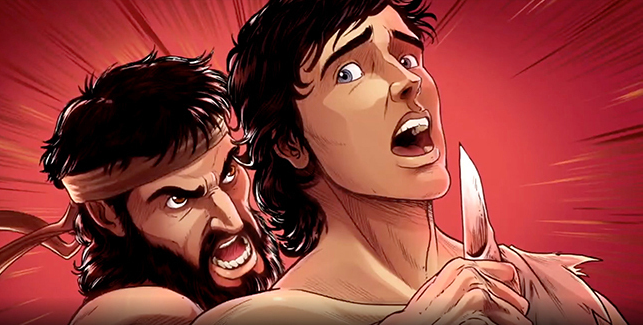
Genesis 4:8-15 KJV
[8] And Cain talked with Abel his brother: and it came to pass, when they were in the field, that Cain rose up against Abel his brother, and slew him.
[9] And the LORD said unto Cain, Where is Abel thy brother? And he said, I know not: Am I my brother’s keeper?
[10] And he said, What hast thou done? the voice of thy brother’s blood crieth unto me from the ground.
[11] And now art thou cursed from the earth, which hath opened her mouth to receive thy brother’s blood from thy hand;
[12] When thou tillest the ground, it shall not henceforth yield unto thee her strength; a fugitive and a vagabond shalt thou be in the earth.
[13] And Cain said unto the LORD, My punishment is greater than I can bear.
[14] Behold, thou hast driven me out this day from the face of the earth; and from thy face shall I be hid; and I shall be a fugitive and a vagabond in the earth; and it shall come to pass, that every one that findeth me shall slay me.
[15] And the LORD said unto him, Therefore whosoever slayeth Cain, vengeance shall be taken on him sevenfold. And the LORD set a mark upon Cain, lest any finding him should kill him.
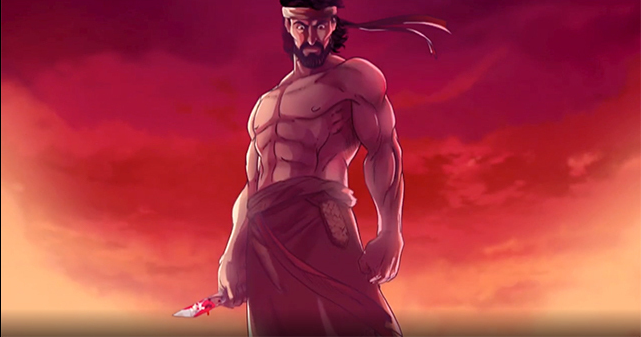
Genesis 4:8
And Cain talked with Abel his brother: and it came to pass, when they were in the field, that Cain rose up against Abel his brother, and slew him.
The first murder. Cain’s religion was too refined to kill a lamb, but not too cultured to murder his brother. God’s Way of Salvation fills the heart with love; man’s way of salvation inflames it with hatred.
“Religion” has ever been the greatest cause of bloodshed.
In the previous verses, God accepted an offering from Abel, but rejected a different sacrifice from Cain. Scripture gives no explicit reasons why, but it seems to be a matter of Cain’s attitude.
Rather than attempting to do right, when corrected by God, Cain responds with anger. God warned Cain that his refusal to choose God’s standards would cause him to lose the battle with sin. Cain, however, would not change course.
Despite God’s loving, clear warning, Cain allows sin to win. Cain talked to his brother, and the two went to the field together. In some manuscripts, the text specifies that Cain wanted to go out into the field with Abel.
There Cain attacks and kills Abel: the first recorded murder in human history. Cain failed to live up to God’s standards, and was angry. When God gave Cain a way to be restored, and warned him about the dangerous nature of sin, Cain instead chose to reject God even further. Cain would not be altered from his course of hurt, anger, and envy.
The Apostle John holds Cain out to us as a negative example, calling Cain “the evil one” (1 John 3:12), revealing that he was motivated by jealousy for his righteous brother.
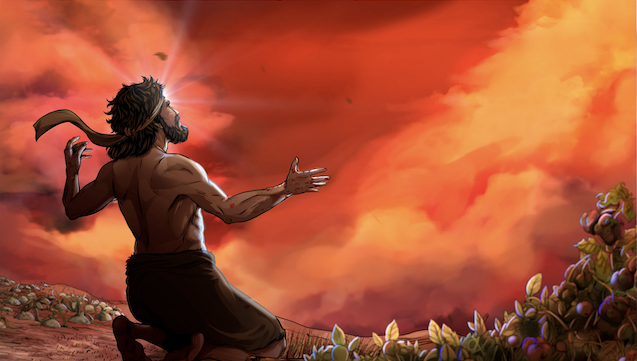
Genesis 4:9
And the LORD said unto Cain, Where is Abel thy brother? And he said, I know not: Am I my brother’s keeper?
Adam sins against God and Cain sins against man. In their united conduct, we have sin in all its forms, and that on the first page of human history.
He showed himself a “liar” in saying, “I know not”; “wicked and profane” in thinking he could hide his sin from God; “unjust” in denying himself to be his brother’s keeper; “obstinate and desperate” in not confessing his sin.
This is practically an impudent answer. He frankly had little regard for either his brother or for his God. He is trying to cover his action, but the Scriptures say, “. . . there is nothing covered, that shall not be revealed; and hid, that shall not be known” (Matt. 10:26).
That is something to think over if you have any secret sins. You had better deal with them down here because they are all going to come out in God’s presence someday anyway.
He already knows about them—you might just as well tell Him about them. This fellow Cain tries to say that he is not guilty. “Am I my brother’s keeper?”—what an impudent answer!
Following Cain’s murder of his brother Abel in a field, God comes to confront Cain. As He did with Adam and Eve following their sin in the garden, God begins with a question He already knows the answer to: Where is your brother? God provides Cain the opportunity for confession.
When God gave this option to Adam, he reluctantly confessed to what he had done. This was not ideal, but it at least reflected a willingness to obey God (Genesis 3:8–13).
Instead of taking this approach, Cain lies to God and remains defiant. He brazenly claims not to know where Abel is. He then asks a question siblings have been quoting to their mothers for generations: “Am I my brother’s keeper?”
This not only represents dishonesty, but disrespect. Cain flippantly rejected any responsibility for his murdered brother in a way which implies it’s wrong of God to even ask the question.
In modern language, Cain is essentially telling God, “Why is Abel my problem?”
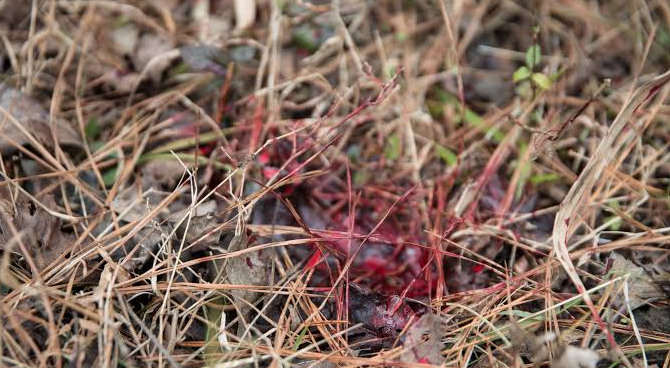
Genesis 4:10
And he said, What hast thou done? the voice of thy brother’s blood crieth unto me from the ground.
(God said this)
This concerns man’s sins, the fruit of his sinful nature. There is some Scriptural evidence that Cain cut his brother’s throat.
Thus, with the first shedding of human blood, that ominous thought sprang up, divinely bestowed, that the Earth will grant no peace to the one who has wantonly stained her fair face with the life-stream of man.
The writer to the Hebrews uses this in Hebrews 12:24: “And to Jesus the mediator of the new covenant, and to the blood of sprinkling, that speaketh better things than that of Abel.”
Abel’s blood spoke of murder committed. The blood of Christ speaks of redemption; it speaks of salvation.
After Cain denied knowing where Abel was, God reveals that He already knows. Using poetic language, God says He can hear the voice of Abel’s blood crying to Him from the ground where it was spilled. How Cain attempted to cover up his crime, we don’t know.
Perhaps he buried Abel or he just left him laying somewhere. In any event, beyond God’s own omniscience, there would have been some physical traces left to connect Abel’s murder to Cain. No part of Cain’s denial will work, either against God or against other men.
This first murder begins to reveal God’s principles of both justice and mercy. Blood spilled in unjust death cries out to be avenged, for the wrong to be made right. God will take responsibility for executing that justice, as well as for making a way for some amount of mercy to be shown to the sinner.
As with Adam and Eve, God chooses mercy and exile over destruction.
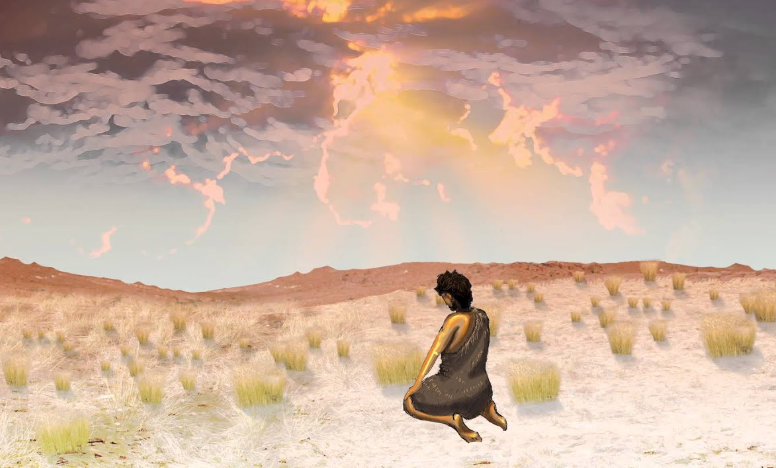
Genesis 4:11
And now art thou cursed from the earth, which hath opened her mouth to receive thy brother’s blood from thy hand;
Certainly the blood of Abel cries out from the very earth itself—blood that was spilled in murder by a brother. Cain repudiated the Cross, murdered his brother, and is now cursed by God; this is the first curse leveled by God against a human being.
This was the beginning of what has proven to be a saturation; from then until now, the Earth has been soaked with the blood of innocent victims.
When Adam sinned, God pronounced a curse on the land on which Adam would have to work (Genesis 3:17–19). Here, as well, God pronounces a curse on both Cain and on the ground in response to Cain’s sin and rebellion.
The beginning of this curse is that Cain, himself, would be “cursed from the ground.” Cain had murdered his brother in the field. The ground had received Abel’s blood. In a form of poetic justice, the ground would no longer give back to Cain any crops.
Cain’s days of working the ground to make a living for himself were over. This punishment fits the crime on several levels. It was Cain’s offering—presumably inferior—of crops which displeased God in the first place (Genesis 4:3–5). Cain’s choice not to obey, but to dig deeper into sin, resulted in him losing everything.
Losing his livelihood was a threat to Cain’s continued existence, but it isn’t the end of his curse.
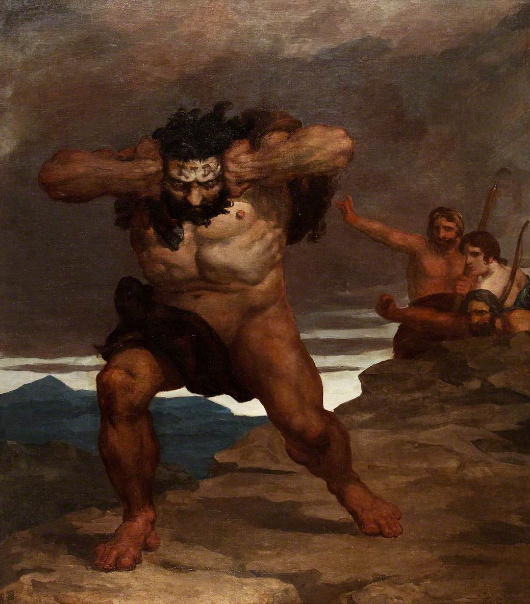
Genesis 4:12
When thou tillest the ground, it shall not henceforth yield unto thee her strength; a fugitive and a vagabond shalt thou be in the earth.
This presents the fact that Cain had polluted man’s habitation, and now, when he tilled the soil, it would resist him as an enemy. This presents the search, not of a better lot, but under the compulsion of an evil conscience.
Yet in our day there is a curse upon the earth because of man’s sin which causes it to lose its fertility. In some of the most lush sections of our earth multitudes of folk are starving.
It takes great effort and ingenuity for man to make this earth produce in abundance.
In the previous verse, God began to pronounce His curse on Cain for murdering his brother Abel. Here, He concludes it.
In addition to no longer being able to get crops from the ground, Cain would become a fugitive and a wanderer on the earth. He would be forced to separate from his family and seek other places to find food and shelter to survive.
Cain’s curse is revealing. Even Cain, evil in his heart (1 John 3:12), found some satisfaction in working the ground to produce crops to feed himself and others. God took away what had brought some meaning and purpose to his life.
In addition, of course, God drove Cain away from his family as He had driven Adam and Eve away from their home in the garden. Sin always leads to separation.
Interestingly, God does not yet demand Cain’s life in response to his murderous act. God will later demand exactly that from His people, in response to the murder of the innocent. He does not kill Cain to satisfy justice for the murder of his brother, and He doesn’t require Cain to make any animal sacrifice to atone for his sin.
This seems to be extended as one last gesture of mercy. Cain, according to the following verses, will not only defy God’s punishment by building a city (Genesis 4:17), he will produce a culture of evil, rebellious people.
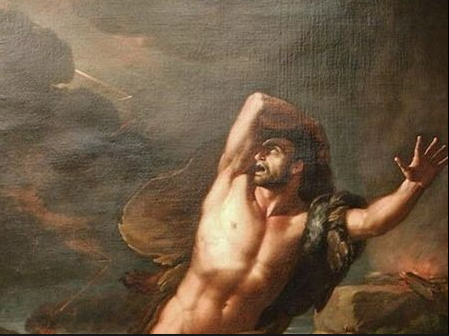
Genesis 4:13
And Cain said unto the LORD, My punishment is greater than I can bear.
Cain did not see the enormity of his sin, but the severity of his punishment; in other words, there was no repentance.
If Cain’s punishment was greater than he could bear, why didn’t he just turn to God and confess his sin and cast himself upon God’s mercy?
It was too great for him to bear, but God was providing a Savior for him if he would only turn to Him.
God has cursed Cain for the murder of his brother Abel. Cain’s response shows that he is not repentant. Instead of acknowledging his sin and receiving the consequence, he complains that it is too much. He claims that he can’t bear it.
Not only has he lost his relationship with God and with his family, but God has removed Cain’s livelihood. In the following verse, Cain will reveal that part of his objection is being driven from God’s presence, losing that relationship and God’s protection from harm.
Even rebellious Cain understood he needed God’s help to survive in the world.
And yet, there is no sense of repentance, remorse, or apology in Cain. As noted, this part of the Bible is extremely light on details. However, there is nothing suggesting that Cain is actually sorry for what He has done.
All of his comments, and all of his actions later in this chapter, suggest selfishness and rebellion. Rather than asking God for forgiveness, Cain’s only response worth recording is to moan that he is being punished beyond his ability to stand.
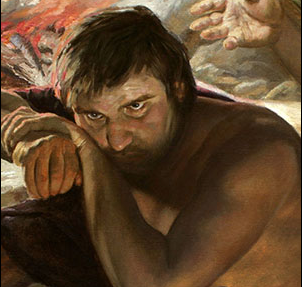
Genesis 4:14
Behold, thou hast driven me out this day from the face of the earth; and from thy face shall I be hid; and I shall be a fugitive and a vagabond in the earth; and it shall come to pass, that every one that findeth me shall slay me.
Adam’s sin brought expulsion from the inner circle, Cain’s from the outer. To be hidden from the Face of God is to be not regarded by God, and not protected by His Guardian care. This means a wanderer. This means seek to.
The reference by Cain to other individuals proves that in the some 100 plus years since Adam and Eve were created, the first parents had other children.
By this time, there could very well have been several thousands of people on the Earth. Cain says now that he is to be hidden from the face of God, and of course, that is exactly what happened.
But notice now that God protects him. This is strange: God is actually harboring a murderer, a criminal.
After Cain killed his brother Abel, God cursed Cain from the ground. The earth would no longer yield crops for him. Cain’s life as a farmer was over. God also banished Cain from his home, sending him out as a fugitive and wanderer on the earth.
In the previous verse, Cain began his protest, saying the punishment was more than he could bear. Now Cain lists back to God what he’s about to lose: crops from the ground, home, and a relationship with God.
Cain will be unprotected in the world as others try to find him and kill him, apparently in retribution for what he did to Abel.
Who was Cain afraid of specifically?
So far in the text, the only people specifically mentioned in Scripture are Adam, Eve, Cain, and Abel who is now dead. The most reasonable interpretation is that the murder of Abel took place decades—perhaps many decades—after Cain and Abel were born.
This would have allowed ample time for Adam and Eve to have other sons and daughters and even for those children to begin having children of their own. As we’ll see in the next chapter, the lifespans of the first generations of humans after the garden lasted hundreds of years.
It’s not impossible that Cain had quite a number of siblings, nieces, and nephews by this time. Many of them would be understandably indignant about the murder of Abel.
God’s response in the next verse will show that Cain’s fear was not unfounded, but also that God’s provision for Cain would be merciful.
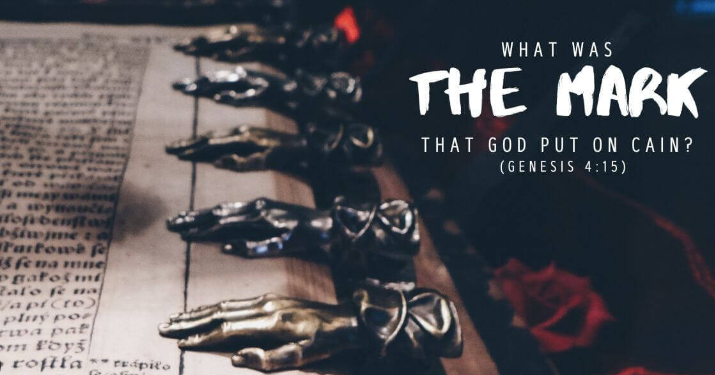
Genesis 4:15
And the LORD said unto him, Therefore whosoever slayeth Cain, vengeance shall be taken on him sevenfold. And the LORD set a mark upon Cain, lest any finding him should kill him.
Cain was allowed to live in order that he might be a perpetual warning to others that the blood of their fellowman must not be spilled; however, very few heeded, as few presently heed.
I do not know what the mark was. There has been a lot of speculation, and I do not know why I should add my speculation to all of it. We aren’t told what the mark was, but evidently, all knew and God protects Cain.
There has been no law given at this time. Cain is a sinner, but he is not a transgressor because there has been no law given about murder.
His great sin is that he did not bring the offering that was acceptable to God. His deeds were evil in what he brought to God, and he manifested that evil nature in slaying his brother.
In the previous verse, Cain expressed his fear over God’s punishment. The murder of his brother would leave him vulnerable to being killed himself, likely in retribution.
God, who is about to banish Cain from His presence, shows that He is still merciful—and determined to stop people from seeking revenge. So He promises Cain that He will take vengeance—times seven!—on anyone who kills Cain.
To seal the deal, and ward off all would-be attackers, God put a mark on Cain. We don’t know what this mark looked like, or if it was even visual.
All we know is that it communicated loudly and clearly to all who met Cain that God would take vengeance on anyone who killed the murderer of Abel.
Why would God do such a thing?
Why not let Cain get what’s coming to him?
Later, God will build into the Law procedures both for bringing justice on wrongdoers and for helping murderers find sanctuary from those who would seek revenge. It seems God’s purpose here is focused on preventing the never-ending cycle of revenge to which humans are prone.
For now, God simply insists on being the one to take vengeance on injustice. In the New Testament, the Apostle Paul will reveal that this is still a role God demands to play today (Romans 12:19).
This verse also strongly suggests that there were other people alive on earth other than Adam, Eve, and Cain. More than likely, this incident occurred many years after Cain and Abel’s birth, perhaps many decades later.
Though the Bible does not explicitly mention them, Adam and Eve probably had other children during this time. As mankind “multiplies” and the earth is filled, there are enough people for Cain to be concerned over.
I hope that you have really enjoyed this post,

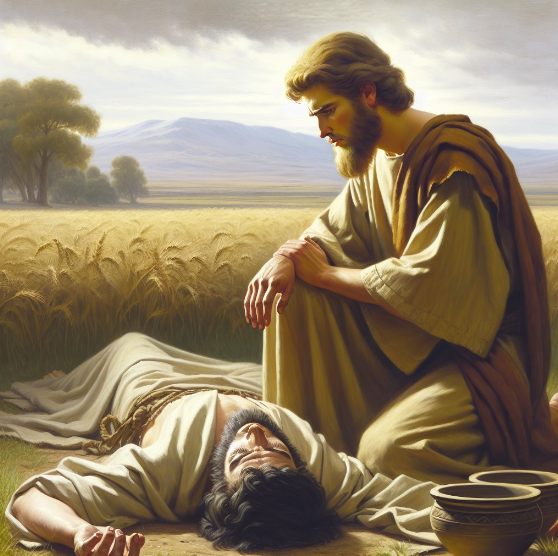











Ever since God spoke in Genesis 3:15, that the woman’s seed would crush the serpent’s head, Satan has tried to thwart God’s plan.
His first attempt was to blot out the Godly line of Abel by enticing Cain to murder him. God’s plan would not be thwarted and Jesus came through the Godly line of Seth.
Our God is so Awesome!
Hello again Scott,
Thank You for commenting on another episode of HBS & DwJ.
The first part of John 10:10 KJV tells us: “The thief cometh not, but for to steal, and to kill, and to destroy:” This information allows us to see what we are dealing with on a daily basis.
Yes, Our God is, Soo Awesome!
Blessings My Firiend!
Thank you.
I really enjoyed reading your interpretation. There are many lessons to draw from this story – not least the sanctity of life and God’s omniscience.
Thank you for highlighting the significance of Cain and Abel in such an interesting and fresh way. It was delightful.
This site is a blessing and I’ll be back for more.
Hello Russell,
Thank you for stopping by and showing interest in this HBS & DwJ Platform.
You are most certainly welcome for the highlighting of the significance of Cain and Abel, and it pleases me to learn that you found it to be such an interesting and fresh way. I am glad that you found it to be a delightful blessing.
Feel free to listen to the HBS & DwJ Podcast on iHeart, Apple Podcast, YouTube, or where-ever you get your podcast.
Blessings My Friend!
This story always resonated with me in school and still does today.
I am not sure how one could think they could hide from the Omnipotent One Himself. He is all around us and our present is His past.
That is the amazing thing about this story, it might have been brother on brother, but He KNEW that this was going to be, He KNEW that this was going to create waves.
Always a powerful story with me.
Hello Mamabear,
Thank you for stopping by, utilizing your valuable time to read, understand, and comment on this episode of HBS & DwJ Podcast.
I agree with you, I’m not sure how one could think that they could hide from the Omnipotent One Himself either. Not only is GOD All Powerful, He is everywhere at the same time, Omnipresent, as well as, All Knowing, Omniscient.
Thank you again for your time,
Blessings My Friend!
The article delves into the biblical account of Cain and Abel, examining the motivations and consequences of Cain’s actions.
It raises important questions about responsibility, jealousy, and the consequences of unchecked anger.
What struck me about the article was its emphasis on the underlying themes and lessons within the story. It explored the concept of being our “brother’s keeper” and the implications of our actions on others. The author highlighted the importance of personal accountability and the impact it can have on our relationships and communities.
Additionally, the article discussed the theological interpretations and moral lessons derived from the story of Cain and Abel. It provided insights into the consequences of harboring negative emotions and the importance of seeking reconciliation and forgiveness.
The article also addressed the relevance of this biblical narrative in our modern lives, encouraging readers to reflect on their own actions and relationships. It reminded me of the importance of fostering empathy, compassion, and accountability in my interactions with others.
Overall, “Cain Murders Abel: My Brother’s Keeper?” is a thought-provoking article that explores the timeless lessons embedded in the story of Cain and Abel. It prompts readers to reflect on their own actions and responsibilities towards others, reminding us of the potential consequences of unchecked anger and the value of seeking reconciliation.
The article’s thoughtful analysis and relevance to our lives make it a worthwhile read for those interested in biblical narratives and their moral teachings.
Hello Steve,
I hope all continues to be well with you.
Thank you for commenting, as well as your continued participation and interest in the HBS & DwJ website. It is a real pleasure to have returning visitors who participates in the spiritual building process such as yourself.
Thank you so much for your educational and inspirational comments, and your continuous input on other episodes as well.
Blessings My Friend!
It is fascinating to delve into these passages and reflect on the complexities of human nature, sin, punishment, and God’s mercy.
The question arises: Why would God show such mercy and protect Cain, instead of allowing him to face the consequences of his actions?
I can see the answer lies in God’s desire to prevent the endless cycle of revenge that humans tend to engage in. By taking vengeance into His own hands, God aims to establish justice and discourage further acts of violence.
Another great post from you!
Hello Miadinh,
Thank you for utilizing a portion of your valuable time to comment on this episode of HBS & DwJ Podcast.
I appreciate you appreciating this episode as great, as well as asking a question and finding the answer in the material.
Looking forward to hearing from you more.
Blessings My Friend!